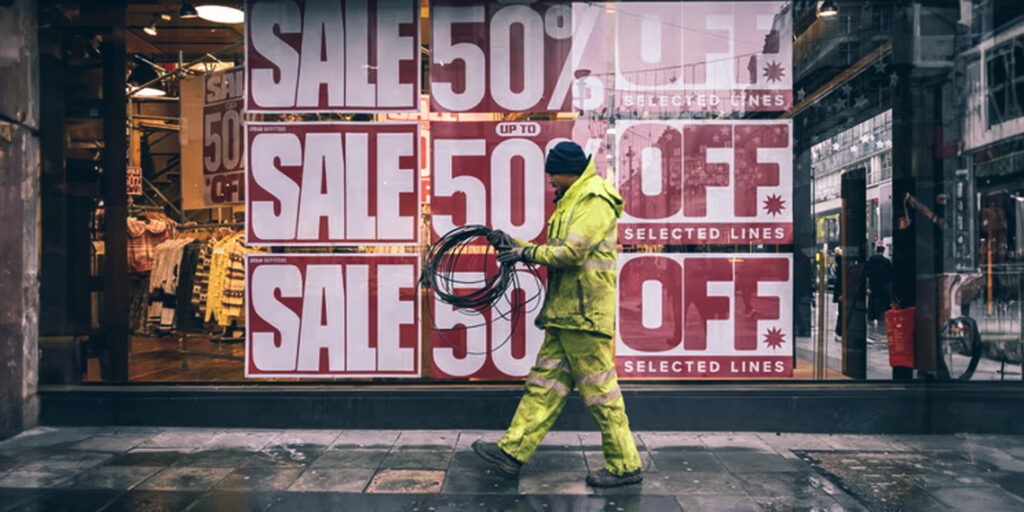UK businesses are forecasting a sharp downturn in activity for the start of 2025, with a new economic survey painting a bleak outlook for the year ahead.
The Confederation of British Industry (CBI) warns of reduced hiring and lower output as firms grapple with sluggish demand and rising costs.
The growth indicator survey, which polled 899 companies between 25 November and 12 December, revealed expectations for growth are at their lowest point since November 2022, following the turbulence of Liz Truss’s brief premiership.
Manufacturers anticipate a steep decline in output through March, while the service sector foresees a contraction in activity.
Impact of Increased National Insurance Contributions
Rachel Reeves’s October budget, which included a £25bn increase in employers’ National Insurance Contributions (NICs), has amplified challenges for businesses already facing tepid demand.
The Chancellor defended the move as essential to addressing a fiscal deficit, but critics warn it could stifle wage growth and lead to job cuts.
The CBI described the NICs hike as exacerbating an already fragile business environment, with many firms now calling for government support to instil confidence and encourage investment.
Among their priorities are reforms to the apprenticeship levy, occupational health incentives, and business rates.
Retailers and Consumers Hit Hard
Separate data from the British Retail Consortium (BRC) indicates further challenges for the retail sector. Consumer spending forecasts have dropped by six points, impacting nearly all retail categories.
BRC Chief Executive Helen Dickinson cautioned that retailers could face a spending squeeze just as they launch January sales.
Bleak Week for Economic Data
The downbeat CBI report caps a week of disappointing economic updates for the government. The Bank of England recently held interest rates at 4.75% but projected stagnant growth in the final quarter of 2024.
Inflation climbed to an eight-month high of 2.6% in December, while a separate CBI survey showed UK factory orders had plummeted to their lowest levels since the pandemic’s peak in 2020.
Economists have warned that the combination of rising inflation and higher borrowing costs could undermine government finances, potentially forcing Reeves to impose additional taxes.
Global Risks Add Pressure
Adding to the challenges is the looming prospect of a trade war with the United States. President-elect Donald Trump has threatened tariffs on EU exports, which may extend to the UK, further straining the government’s growth agenda.
Government Defence and Plans for Stability
Commons Leader Lucy Powell defended the government’s economic approach, acknowledging public disappointment but attributing challenges to Labour’s inheritance.
A Treasury spokesperson reiterated the government’s commitment to stability, highlighting measures such as capping corporation tax at the lowest rate in the G7, introducing a 10-year infrastructure plan, and creating pension mega funds to drive investment in British businesses and green energy.
Despite these efforts, businesses are urging the government to act swiftly to provide a clear path forward and boost confidence as they face an increasingly uncertain year ahead.


